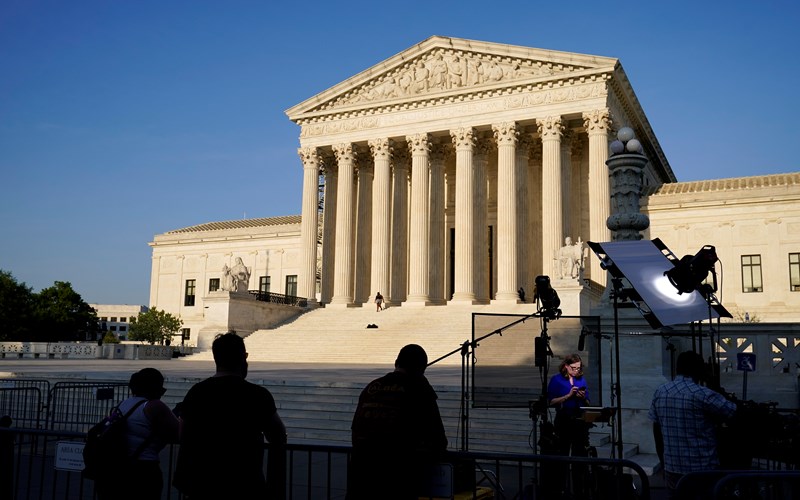Just as he did in 2016 and 2020, Donald Trump plans to release a list of potential Supreme Court nominees should he win in November and regain the Oval Office. As The Washington Times notes, the move revives a strategy he used to help win over conservatives in 2016.
Phillip Jauregui of the Center for Judicial Renewal at AFA Action says his organization is compiling its own list of judges for consideration. But these are not just any judges – they are constitutional judges determined by ten principles that AFA Action is looking for at this time.

"If we are going to put someone on the [Supreme] Court and we want them to be the best nominee, the way to start is, before even talking about names, to talk about a standard," says Jauregui. "So, what is it that we are looking for? It's like having a target: you can just shoot a bow and arrow somewhere – or you can say 'No, I see the target and that's where I'm aiming.'
"So, that is what we have done with the 10 Principles of a Constitutional Judge."
At the top of the list? "Biblical Worldview." The Center explains that "while the Constitution prevents governmentally imposed 'religious tests,' nothing prevents citizens and groups from preferring Christians as our rulers." It then goes on to quote the first chief justice of the U.S. Supreme Court, John Jay:
"Providence has given to our people the choice of their ruler, and it is the duty, as well as the privilege and interest of our Christian nation to select and prefer Christians for their rulers."
The Center's list also includes principles such as "Original Textual Meaning," "The Role of Courts to Decide Cases," and "Stare Decisis."
Jauregui explains his group deliberately chose NOT to start using someone else's list.
"[We decided to] just develop our own list based on who we think best matches up with those standards, the 10 Principles of a Constitutional Judge; and then let's create a green list and put those names on the list, and then see if those folks will end up on the U.S. Supreme Court," he explains.
Those on that "green list" are: Judges Kyle Duncan (Fifth U.S. Circuit of Appeals), Lawrence VanDyke (Ninth Circuit), and James Ho (Fifth Circuit); Deans Mark Martin (Highpoint University School of Law) and Morse Tan (Liberty University School of Law); and Kristen Waggoner (CEO, president, and general counsel of Alliance Defending Freedom).
Editor's Note: AFA Action is an affiliate of the American Family Association, the parent organization of the American Family News Network, which operates AFN.net.







